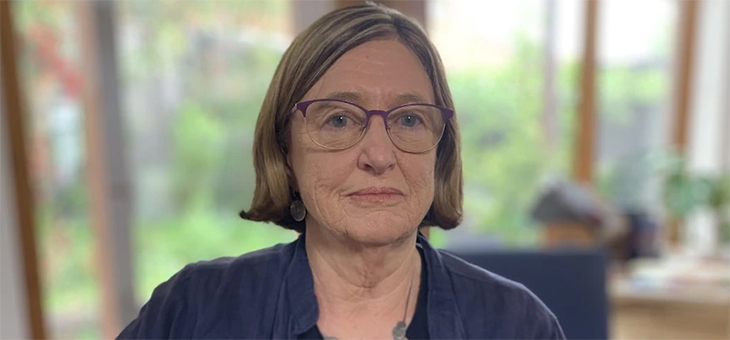As Jill Green approached her late fifties, she was looking forward to retirement, with a chance to slow down and travel.
Instead, for the last four years, she has been raising six grandchildren aged 4 to 13 on her own in Newcastle.
“Sometimes I just want to cry, sit down, and just think … I can’t do this anymore,” she said.
“But then I look into their faces and just think, nah, I’ll get over this in a minute.”
Jill, 61, had to step in when her son, the children’s father, and their mother could no longer care for them.
She knows she’s far from alone.
“You got all these grandparents who are giving up their lives and saying, ‘Well, I’m going to take the kids and I’m going to care for them,’ but don’t get any help,” she said.
Jill is an informal kinship carer. These are family members – grandparents, aunts, uncles, even siblings – who look after children who cannot live with their parents, but are not in formal Out of Home Care (OOHC).
OOHC includes foster care, formal kinship arrangements, and residential care.
While formal OOHC arrangements received more recognition, there are far more children living in informal kinship care, according to University of Melbourne psychologist Meredith Kiraly.
“I think it’s a huge problem, because it’s so hidden,” she said.
Dr Kiraly estimates that at least 100,000 children live in informal kinship care in Australia. That’s more than twice the number in formal OOHC arrangements.
Informal kinship carers get less support
The distinction between formal and informal kinship care has huge consequences when it comes to financial support.
Formal care is a state and territory responsibility, and payments are made to carers for each child they are looking after.
But informal carers get no support from state and territory child protection services.
“The allowance provided by child protection is a lot more money than anybody gets from Centrelink,” Dr Kiraly said.
For Jill Green, the difference between being a formal versus an informal carer is more than $1,800 a fortnight in support.
If her six grandkids had been placed with her by a court order, they would be in a formal kinship system.
Under that arrangement, the New South Wales Department of Communities and Justice would pay her an allowance of approximately $3,390 per fortnight to support the six children.
But because Jill is an informal kinship carer, she relies on Centrelink and receives about $1,555 a fortnight.
She works four days a week to make up the difference.
“Getting ready for school, dropping them all off, off to work, working all day. Come back. Pick them up. Getting dinner on the table,” she said.
“It’s really hard to balance.”
Jill is Aboriginal. About 40 per cent of the children in OOHC are Indigenous. It’s not clear what the figure is for informal kinship care.
“Kinship care is probably the most important thing to Aboriginal families,” she said.
Jill has had to take money out of her superannuation for the basics, like a new van to replace her old car that was constantly breaking down.
“I had no choice. I had to tap into [my super] and use it to make our lives more comfortable and easier,” she said.
“I don’t see that I’m going to be able to retire and travel and do the things that I would have loved to have done. It’s not going to happen.”
Despite the difficulties, Jill said missing out on more government support to have her grandkids without a court order was a “no brainer”.
Getting a court order comes with a risk of having siblings separated.
“You’re going to keep your family together, no matter what,” she said.
Carers saving governments ‘an enormous amount of money’
Lindsay Wegener, from Queensland advocacy group PeakCare, says informal kinship carers carry an unfair financial load.
“In many ways, these families are saving state and territory governments an enormous amount of money, but at their own expense,” he said.
“It includes grandparents who are cashing in their super or postponing retirements or going through massive lifestyle changes in order to keep these children within their families.”
The federal Department of Social Services said in a statement: “Grandparent and informal carers may be eligible for all of the same Australian government payments that a parent is able to receive.”
The department also said the Services Australia Grandparent Adviser Line could help grandparents, kinship and foster carers even if they aren’t currently getting a payment from Services Australia.
But advocates say many informal kinship carers have difficulties claiming what they are entitled to through Centrelink.
They also say the Adviser Line is perceived as being too focused on grandparents, at the expense of other informal kinship carers.
Laura Box, who lives in the Melbourne suburb of Moonee Ponds, became her sister’s legal guardian six years ago after their mother died. She was 28 at the time; her sister Natalie was 11 years old.
“Parenting someone that is your sibling … it’s just a totally different kind of parenting,” she said.
Ms Box’s concern is not so much financial support, but guidance for those thrust into parenting without notice.
“There’s a lot of services that specialise in grandparents that take care of kids. But [for] the rest of … kinship care families there’s not really any resources,” she said.
For Natalie, making the adjustment to seeing her sister as her parent was not easy.
“Knowing that she is my sister and not my mum was really difficult to wrap my head around until I got to about 15, 16,” she said.
“[That’s] when I started … appreciating that she is my sister, but she’s also my guardian.
“It’s really terrible that the support they get is very little. It’s not a great situation to be in.”
 © 2020 Australian Broadcasting Corporation. All rights reserved.
© 2020 Australian Broadcasting Corporation. All rights reserved.
ABC Content Disclaimer

